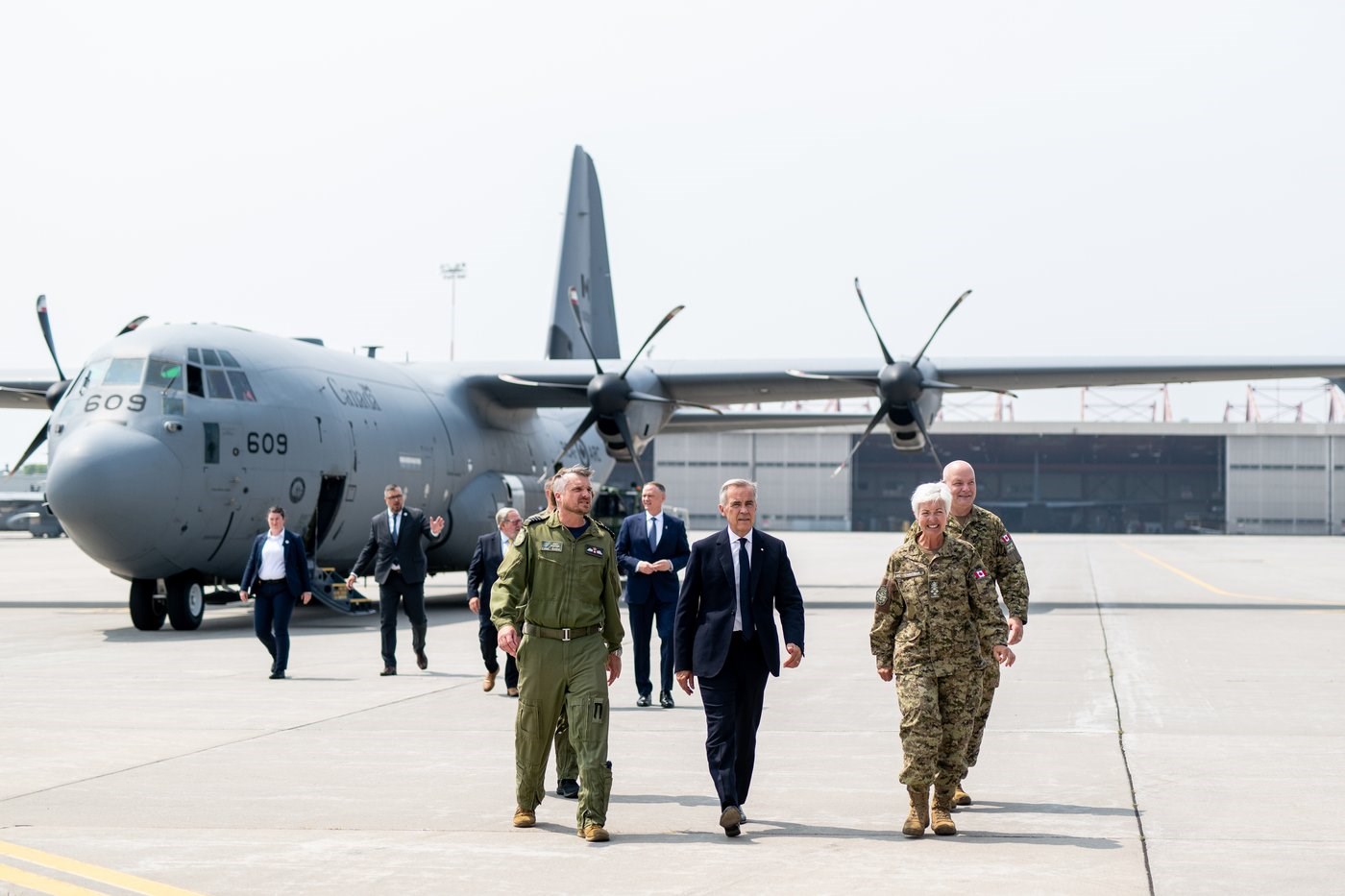
Prime Minister Mark Carney, centre, and Chief of the Defence Staff Gen. Jennie Carignan, right, walk on the tarmac of Canadian Forces Base (CFB) 8 Wing Trenton in Trenton Ont., on Friday, Aug. 8, 2025. THE CANADIAN PRESS/Spencer Colby
August 09, 2025 - 3:00 AM
OTTAWA — The federal government's decision to boost entry-level pay for Canadian Armed Forces members is being praised by expert observers as long overdue.
On Friday, Prime Minister Mark Carney said his government will hike entry-level pay for Canadian Armed Forces privates by 20 per cent for the regular force and 13 per cent for reservists.
The new pay hikes will be retroactive to April 1 this year.
Fen Hampson, a professor of international affairs at Carleton University, said the pay increases were a long time in coming, especially at the lower level.
He said that if the government is going to be spending a lot more money on defence, boosting pay — particularly at the entry level — is "a good way to do it."
Given the Canadian Armed Forces' struggles with recruitment and recent reports indicating the military has seen a surge in hateful conduct and racism in the ranks, Hampson said it's wise to "up the ante" on salaries to encourage more people to sign up.
Hampson said boosting salaries alone won't get the government to the NATO target "in the context of an economy that is obviously beginning to slow down." He cited new data shared by Statistics Canada Friday that said Canada shed 41,000 jobs last month.
Carney also said that colonels and those in higher positions will receive an eight per cent raise and lieutenant-colonels and those below that rank will receive a 13 per cent raise.
The pay hikes are part of a plan to boost recruitment and operational readiness.
"All members of the Canadian Armed Forces will receive a pay raise," Carney said Friday. "These increases, in pay and incentives, will help us to revitalize and transform recruitment and retention, to bolster force readiness and to ensure that members in uniform have the confidence and certainty that they need."
Federal bureaucrats told journalists in a technical briefing that the new compensation package is expected to cost around $2 billion annually. It's part of a planned $9.3 billion budget boost this year to get to NATO’s defence spending benchmark of two per cent of GDP.
The government also said it’s creating new military allowances and enhancing existing ones to help it retain personnel and drive up recruitment in a competitive job market.
Those allowances include $50,000 in bonuses for people entering and working in what the government calls "stressed occupations" — critical jobs in sectors that are seeing too many vacancies.
The government says staffing levels in 53 of 116 critical occupations, which include vehicle and maritime technicians, are now below 75 per cent.
David Perry, president and CEO of the Canadian Global Affairs Institute, said the government has done "a bunch of smart things" on recruitment.
He said it was wise to scale the pay increase because an across-the-board hike would "probably not really have been a smart use of additional funds."
Defence Minister David McGuinty pitched a 20 per cent pay raise earlier this summer. The measures Carney announced Friday only increase pay for one tranche of members based on rank.
Perry said it's also a good idea to woo people into understaffed parts of the military with targeted incentives.
"I think that makes sense," he said, adding that he thinks the pay hikes will make a "significant difference" in making entry level positions more attractive.
— With files from Kyle Duggan
This report by The Canadian Press was first published Aug. 9, 2025.
News from © The Canadian Press, 2025